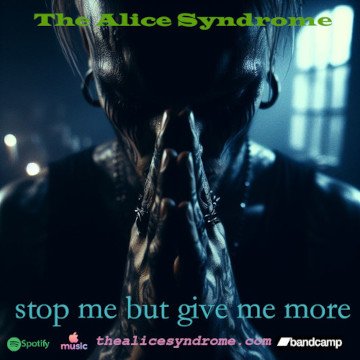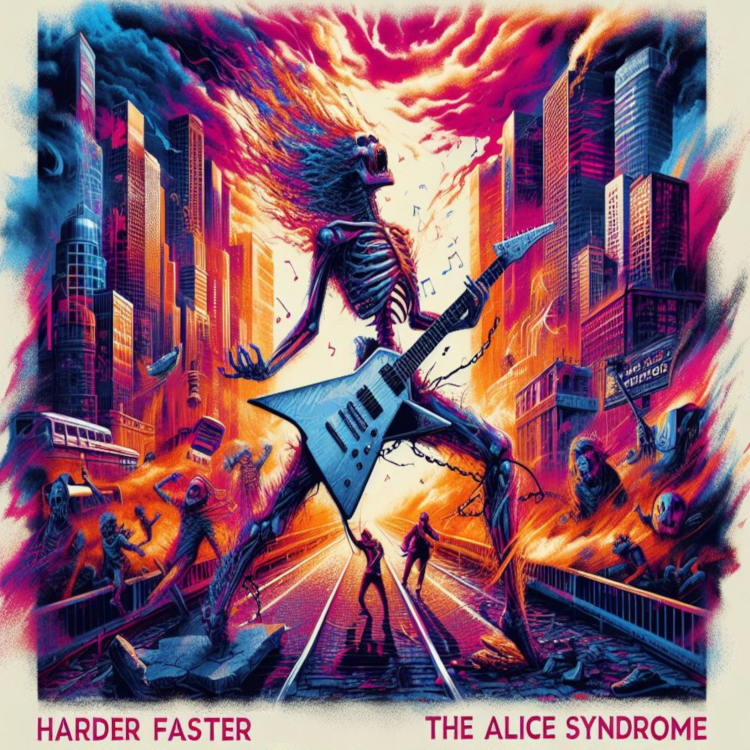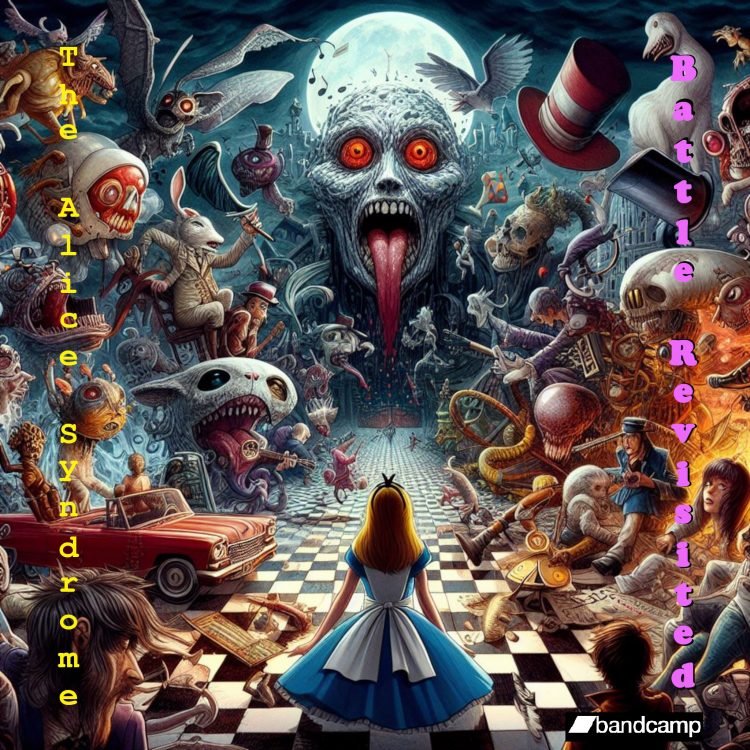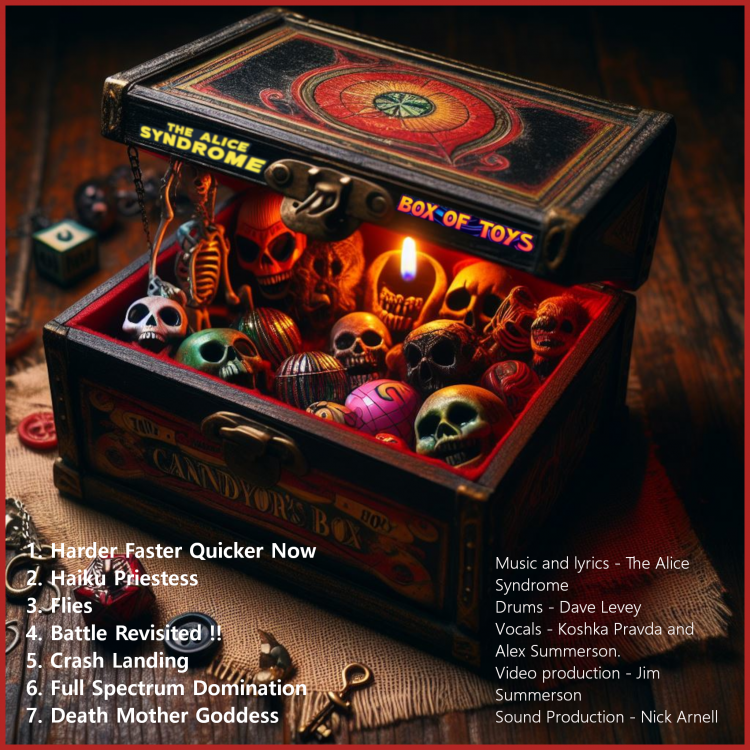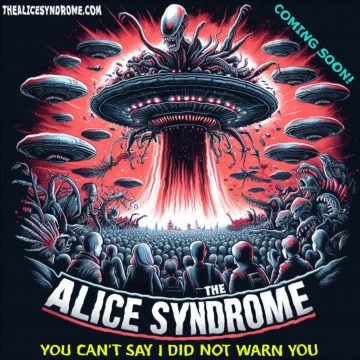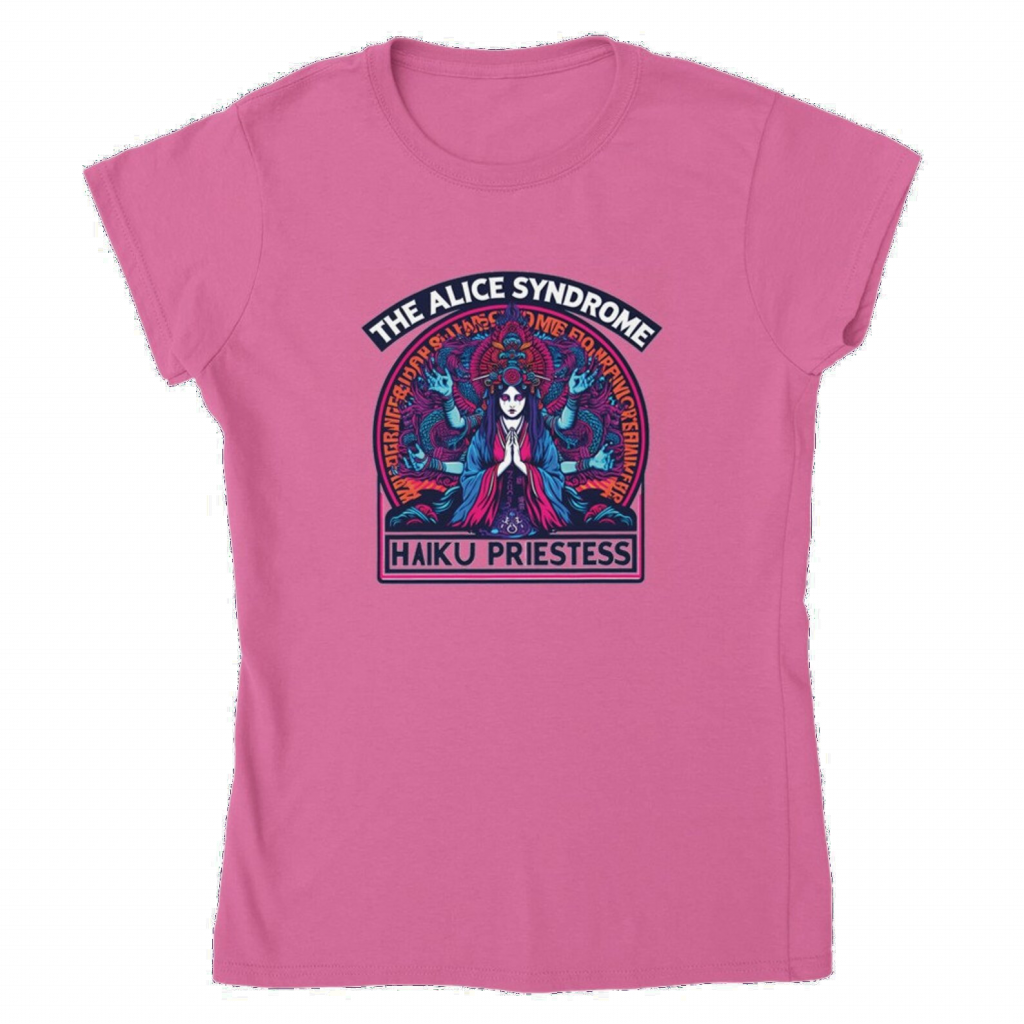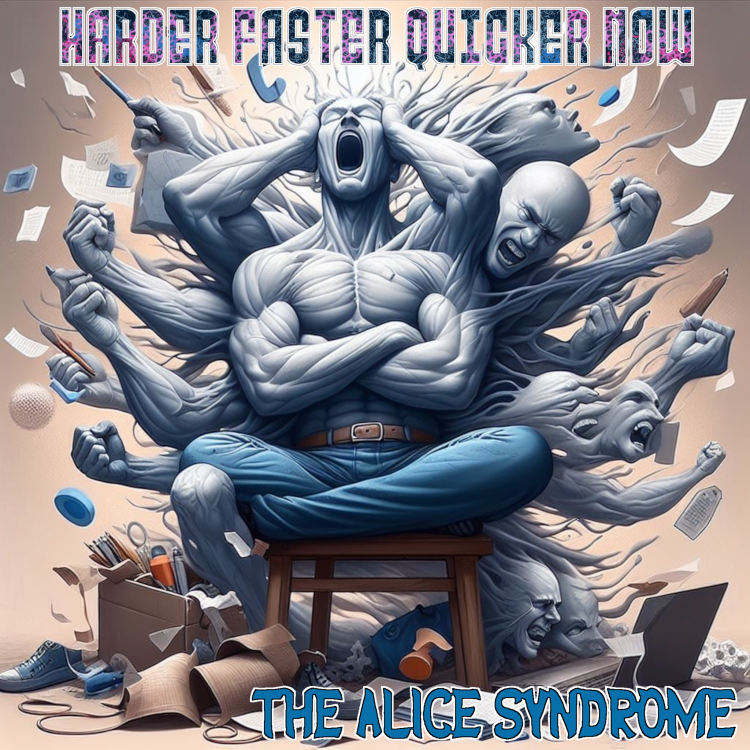
Welcome to George’s blog. I play keyboards in the Alice Syndrome, and I’m also very interested in psychology, spirituality and self-transcendence. Groovhead tends to write all our lyrics, which always touch on subjects that hit deep into my interests.
There are too many books I have not read Take the knife and mark my skin Warning signs will go unnoticed I want more days so I have time
too many words I have not said
Too many feelings left untouched
Harder faster quicker now
Lessons learnt will be forgotten
As I plot another process
plot another path of torment
harder faster quicker now
As my soul is spread so thin
Drain me slowly, take it all
Harder faster quicker now
As I work on through the process
Choosing not to see the dangers
Harder faster quicker now
To reclaim what is rightfully mine
Though it never can be returned
Harder faster quicker now

The lyrics of harder faster quicker now, express a sense of urgency, frustration and self-destruction. The narrator feels overwhelmed by the things they have not done, the emotions they have not felt, and the life they have not lived.
Many people experience a sense of anxiety or guilt when they think about the tasks they have not completed or the goals they have not achieved. This is a common psychological phenomenon that can affect anyone at some point in their life.
There are various factors that can contribute to this feeling, such as unrealistic expectations, perfectionism, procrastination, stress, or lack of time management skills.
There are also effective strategies to cope with this feeling and reduce its negative impact on one’s well-being and productivity. Some of these strategies include prioritizing the most important or urgent tasks, breaking down large projects into smaller and manageable steps, setting realistic and achievable goals, rewarding oneself for accomplishments, seeking help or support when needed, and practising self-compassion and mindfulness.

As the lyrics continue, it becomes clear they resort to a compulsive and reckless behaviour, ignoring the consequences and the warnings. They inflict pain on themselves, both physically and mentally, as a way of coping with their dissatisfaction and emptiness.
Negative coping is a term that describes the use of maladaptive strategies to deal with stress or emotional distress. These strategies may provide temporary relief or distraction, but they often have harmful consequences in the long term. Examples of negative coping include substance abuse, self-harm, gambling, binge-eating, or excessive spending.
Negative coping can be seen as a form of compulsive and reckless behaviour because the person ignores the negative effects of their actions on themselves and others. They may also disregard the warnings or advice from their friends, family, or professionals who try to help them. This can lead to a vicious cycle of increasing stress, emotional pain, and unhealthy behaviour.
Negative coping can sometimes be overcome by learning and applying positive coping skills, such as relaxation, exercise, meditation, hobbies, or seeking support. Positive coping skills can help reduce stress, enhance well-being, and improve the quality of life. However, there can be underlying issues that drive this coping behaviour, often making it all the more dangerous and difficult to manage for the individual concerned.
As the lyrics continue, the individual also seems to have a delusional hope of reclaiming what they have lost, even though they know it is impossible. The chorus repeats the phrase “harder faster quicker now” as a mantra that reflects their obsession and desperation.

The song can be compared with other songs that deal with similar themes of alienation, self-harm and nihilism. For example, “Hurt” by Nine-Inch Nails (and later covered by Johnny Cash) describes the feeling of being numb and isolated, and the use of drugs and cutting as a way of escaping from reality.

Another example is “Basket Case” by Green Day, which portrays the experience of having a panic disorder and feeling paranoid and out of control. Both songs also use a fast tempo and a distorted sound to convey the intensity and chaos of their emotions.
















